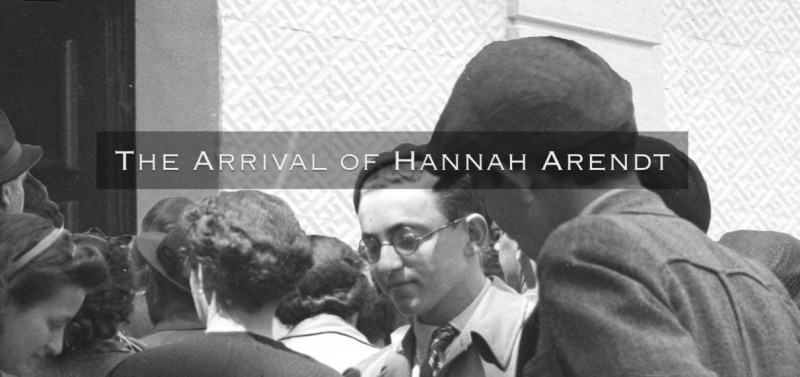
The Arrival of Hannah Arendt
This film describes the arrival of Hannah Arendt - a Jewish, German-American political theorist and publicist - in New York and her reflections on flight and helping people start over.

New York! Gigantisches Gemeng aus Stahl, Zement und Glas,
aus Menschen, Lärm und Licht, aus Farbensonnen,
die in der Nachtluft tänzeln, wo verarmt und blaß
der Mond verschwimmt in dunstverfleckten Himmelszonen-
…
wie klar hab ich mein Selbst zurückgewonnen,
als ich in dir von meiner Traurigkeit genas.
Mir war so elend fremd, und die Verzweiflung fraß
mein Innres kahl, denn mit vertriebenen Millionen
kam ich aus Tyrannei und Schrecknisses Europas
in ungewisser Flucht dahergeweht. Nach vielen Stationen
war dies die letzte für den Emigranten ohne Pass
und Geld.- Und dumpf empfand ich nichts als das:
Auch diese neue Fremde wird dich nicht verschonen.

New York! Gigantic mixture of steel, cement and glass,
of people, noise and light, of suns of color..,
dancing in the night air, where impoverished and pale
the moon blurs in the haze of the sky-
…
how clearly I regained my self,
when I recovered from my sadness in you.
I was such a miserable stranger, and despair ate away
my insides bare, for with displaced millions
I came from the tyranny and terror of Europe
in uncertain flight. After many stations
this was the last for the emigrant without passport and money.
And dully I felt nothing but that:
This new stranger will not spare you either.
The author Oskar Maria Graf was born on July 22, 1894 in Berg am Starnberger See. He was an Upper Bavarian folk writer who described himself as a provincial writer and peasant poet. His literary beginnings can be found in expressionist poetry. He wrote poems, novels, (autobiographical) stories, calendar stories, political appeals and short prose. Oskar Maria Graf was one of the authors who recognized earliest what was coming to Germany with Nazi barbarism. That is why he fled his Bavarian homeland immediately after Hitler’s appointment as Reich Chancellor in 1933 and – after stopovers in Vienna and Brno – finally ended up in exile in America. A tiny apartment in a tenement block in northern Manhattan became his home. He lived in New York until his death in June 1967. There are numerous anecdotes about his unwillingness to integrate. Not only did he maintain a Bavarian regulars’ table at the “Alt-Heidelberg” restaurant, he also made little effort to learn American English. Still at home alone in his language, a written German with a Bavarian tinge, he continued to write important works even in exile.
Thomas Hartwig, Achim Roscher, 1986: Verheißene Stadt: Deutsch-jüdische Emigranten in New York. Gespräche, Eindrücke und Bilder. Berlin: Das Arsenal. p.5.
Translation from German to English © Minor Kontor / We Refugees Archive.